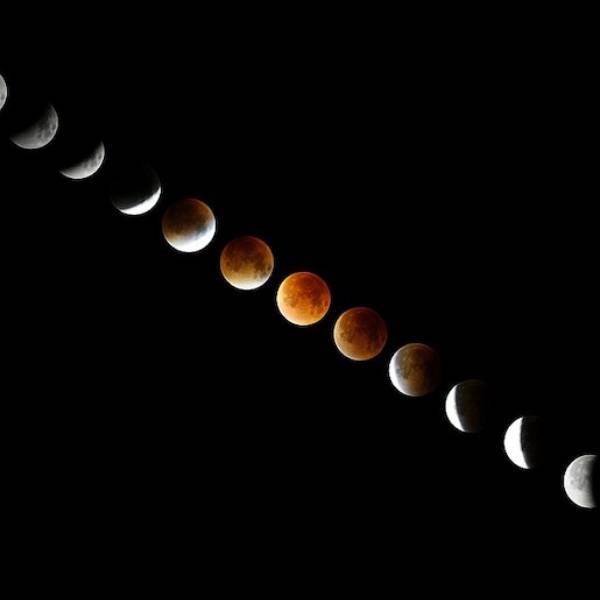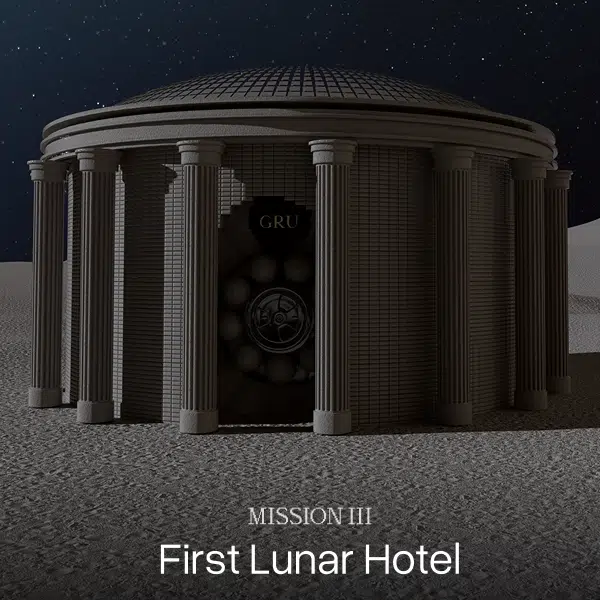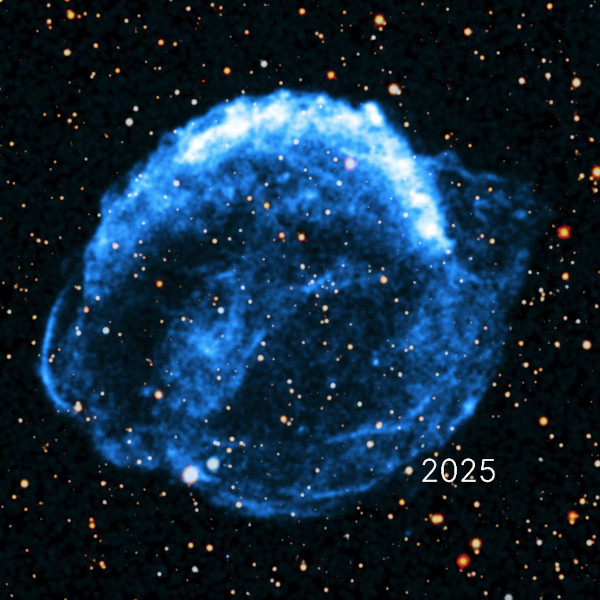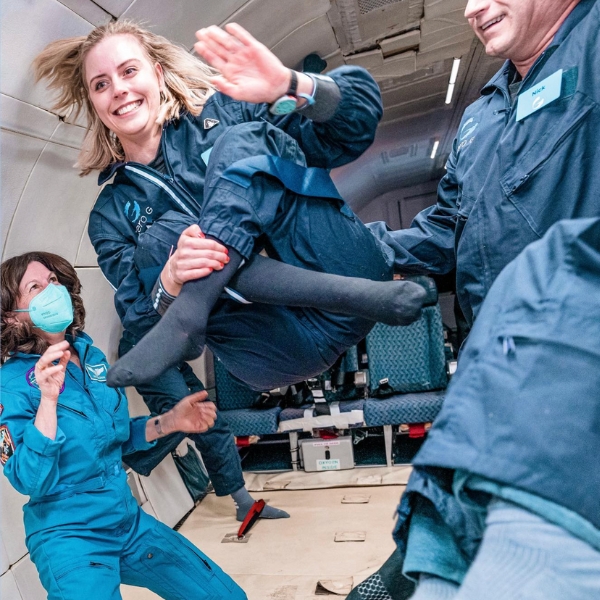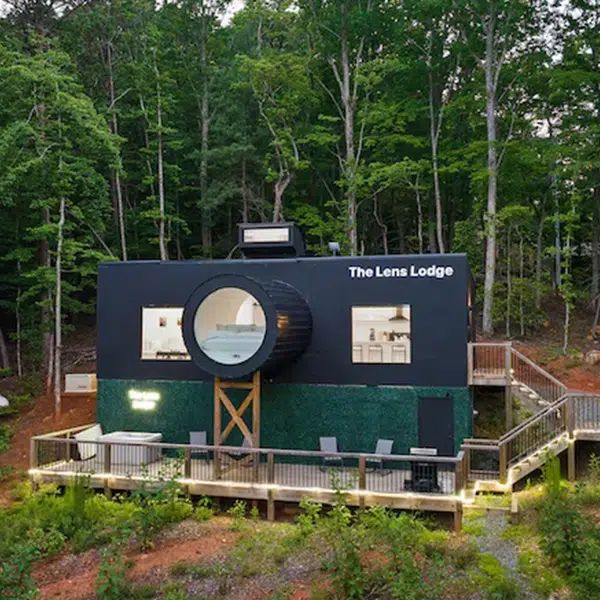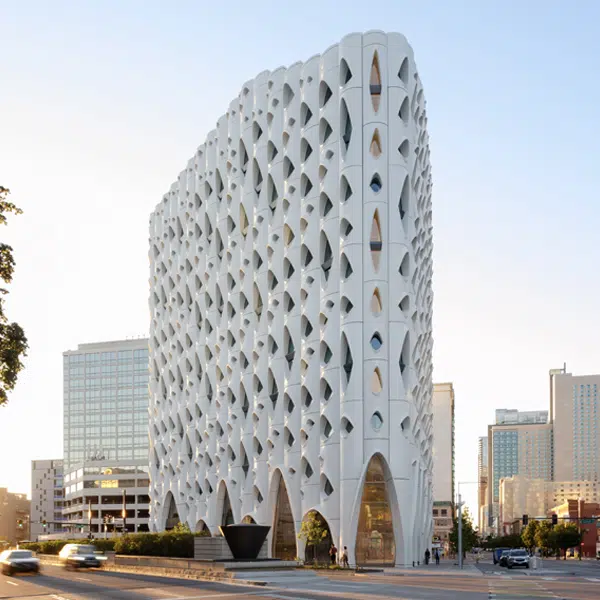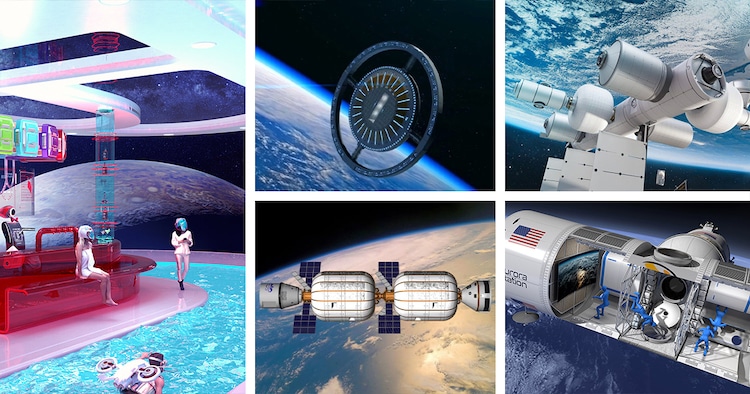
Have you ever dreamed of spending a night in the vast emptiness of space? While we as a species have learned to escape the confines of Earth and explore the great unknown, the journey is a privilege for only the select few. With the rigor of training that astronauts undergo before traveling to space, the idea of everyday consumers completing the trip sounds like a distant dream. Yet, some believe space hotels will be here within the decade.
Though some ideas for space hotels certainly are far-fetched, others are making us think twice about the possibility. We break down some of our favorite proposals for intergalactic accommodations, including ideas that have a relatively short timeline for launch. Other ideas are a bit less serious and simply act as beautiful artistic renditions of a distant future. Though they are all different, all of these ideas inspired us to think bigger and get excited about a world with commercial space travel.
Have you ever dreamed of traveling to outer space? These five space hotel ideas imagine what that might look like.
Voyager Class Space Station by the Gateway Foundation
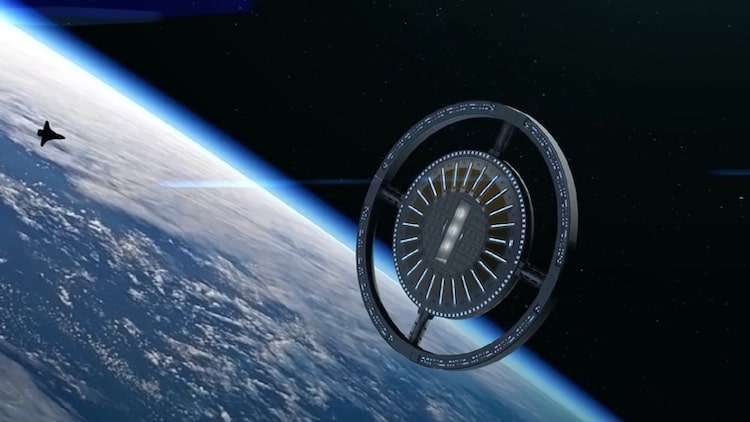
The first space hotel on our list plans to serve clients by 2027. With an ability to carry approximately 400 passengers, the Voyager Class Space Station by Gateway Spaceport ambitiously aims to provide a safe travel experience for the masses. Twenty-four modules are organized along a rotating wheel which can adjust levels of gravity by increasing or decreasing the speed of rotation.
The design is equipped with all of the amenities found in a normal hotel including a spa, cinema, restaurants, and other programs to help mimic leisure on Earth. Still, it is hard to imagine anything as interesting as looking back down at our planet surrounded by the blackness of space.
For more information and renderings of this proposal, read our previous coverage of the Voyager Class Space Station.
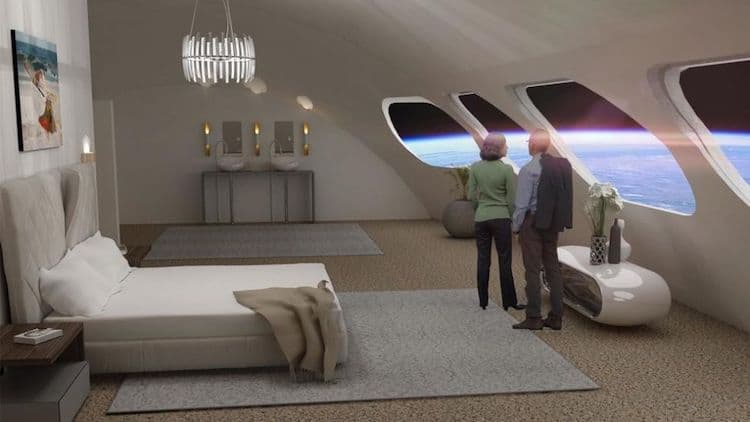
One Small Step for Hotels
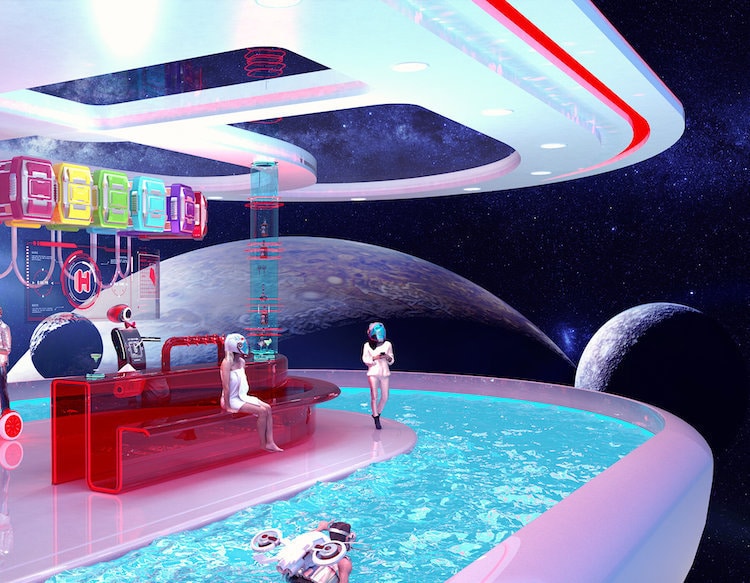
Hotels.com is so certain that space travel is in the near future that the site has even begun taking reservations. On a site called One Small Step for Hotels, the company imagines a sci-fi future with bright lights and stylish spacesuits.
The proposal imagines that guests would have limited interaction with humans working at the hotel. Their stay would be facilitated by robot bellhops, AI concierge, and other futuristic services fitting for the sci-fi hotel. One of our favorite features is the Meteor Minibar where guests can enjoy Cosmic Cosmos, Martian Martinis, and other treats rendered as floating objects served by robots. The playful renderings capture a playful and fun image of space travel.
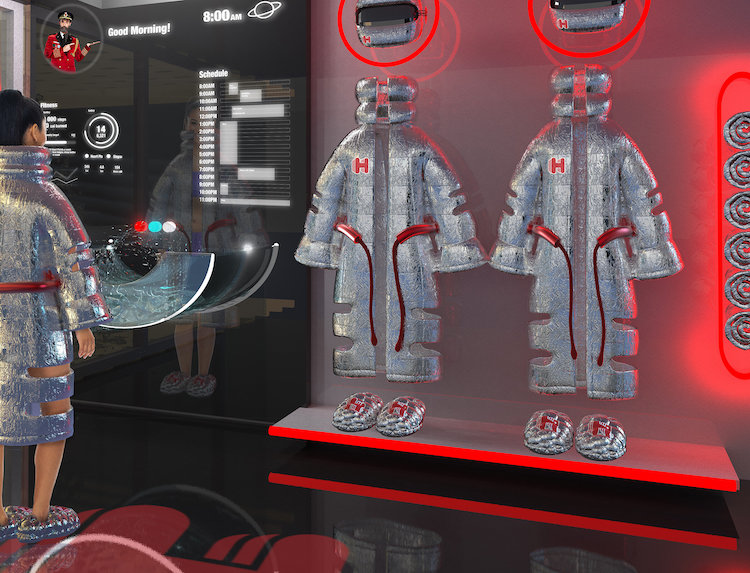
BEAM
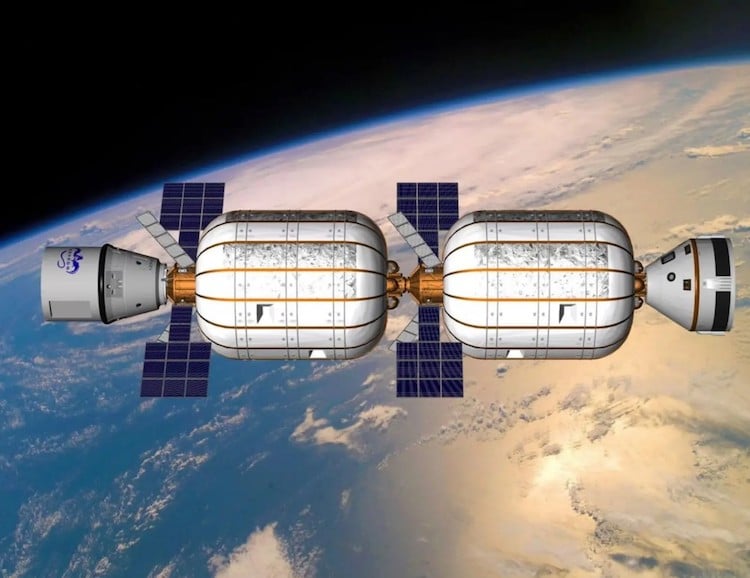
Bigelow Space Operations (BSO) is a subsidiary of American space company Bigelow Aerospace. It was developed to consider marketing and operating space stations in low Earth orbit—where most space hotels plan to take their clients. With a history of successful spacecraft design and development of inflatable modules for NASA, Bigelow Aerospace certainly understands the requirements for getting people to space.
Bigelow Aerospace and BSO considered space tourism to be secondary uses for certain modules during missions on gravity research. One of their most notable ideas for a space hotel was the CSS Skywalker. More recently, Bigelow expressed the possibility of leasing space on BEAM (Bigelow Expandable Activity Module) to corporations and countries for a cost of $26-$36 million.
Orbital Reef by Blue Origin
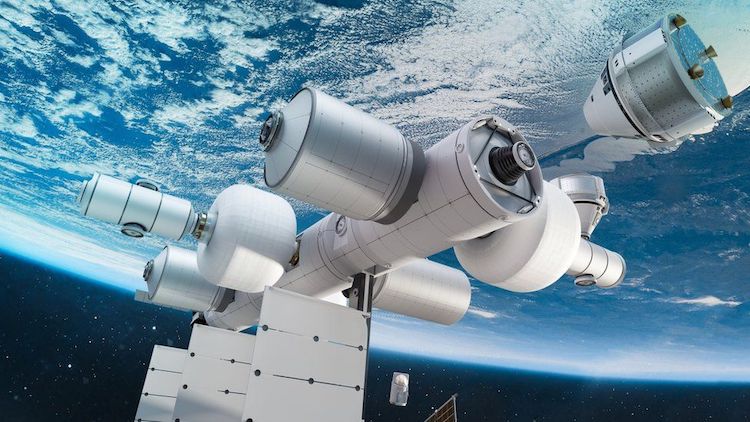
Orbital Reef is a station imagined by Blue Origin, the space tourism company owned by Amazon founder Jeff Bezos. Late in 2021, Blue Origin successfully completed its first human spaceflight, but the company has plans to further expand the opportunity for space travel.
Current plans for the Orbital Reef station call for a 32,000-foot spacecraft capable of accommodating up to 10 people. It is branded not exactly as just a hotel accommodation but as a “mixed-use business park” capable of traveling to space. The station would be used for film-making, research, and other uses as well as a space hotel.
Aurora Station by Orion Span
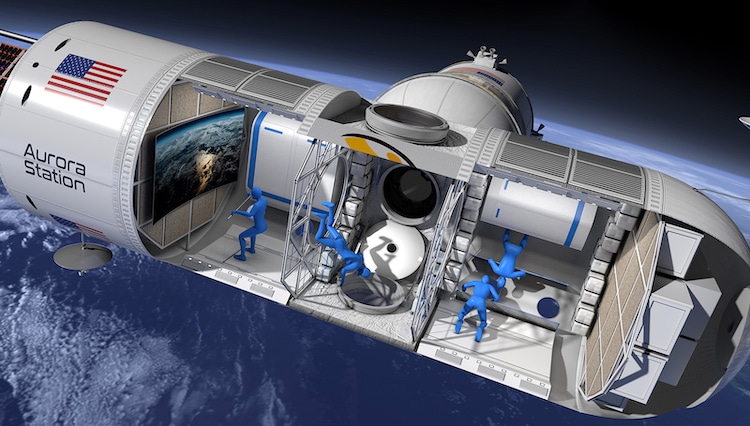
Aurora Station is the brainchild of U.S. startup Orion Span. It claims to offer guests the chance to see 16 sunrises in just one day—for the price of $9.5 million dollars. “Our goal is to make space accessible to all,” says Frank Bunger of Orion Span. “Upon launch, Aurora Station goes into service immediately, bringing travelers into space quickly and at a lower price point than ever seen before.”
Aurora Station is designed to accommodate four travelers and two crew members at a time for a 12-day journey. The guests will have to go through a streamlined and specialized version of astronaut training to prepare for the realities of space travel. After that, they will fly in Low Earth Orbit and pass by Earth every 90 minutes.
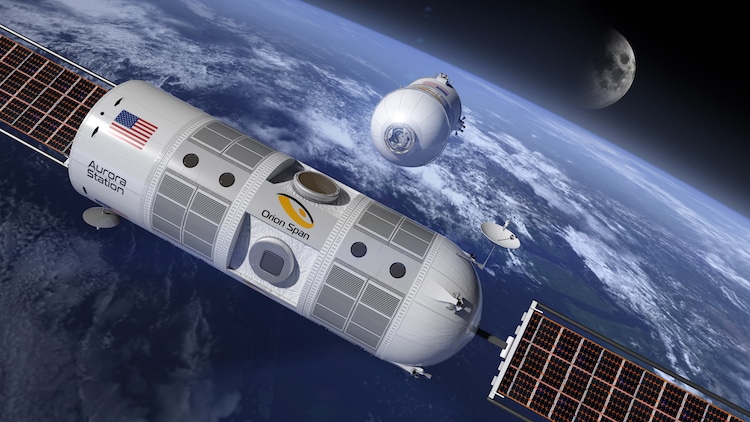
Related Articles:
World's First Space Hotel Will Become a Reality in 2027
NASA Launches the James Webb Space Telescope, the Successor to the Famous Hubble
Spectacular Time-Lapse Footage Taken by World’s First Spacecraft To “Touch the Sun”
82-Year-Old Wally Funk Will Join Jeff Bezos in Blue Origin’s Space Launch











































































